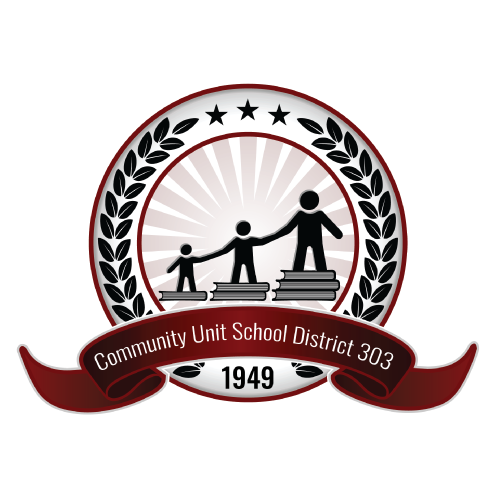As an integral member of the Learning and Teaching Department, the mission of Student Services is to ensure the ongoing growth and development of each and every D303 student. The Student Services Department is committed to ensuring access to an inclusive climate and culture, as well as rigorous instruction aligned to academic, social, and emotional grade-level standards. Through a culture of belonging, Student Services works collaboratively with stakeholders to proactively implement explicit, systematic, high leverage instructional practices and individualized service delivery to maximize each student's potential.
Department of Student Services
The Student Services Department supports the success and well-being of all students in the district—not just those receiving special education services. While special education is an essential part of our work, Student Services encompasses a much broader mission. This includes providing supports related to mental health, behavior, counseling, nursing, social work, 504 plans, homelessness and residency support (McKinney-Vento), crisis intervention, English Learner supports, and more.
Our role is to remove barriers to learning and promote equity, access, and readiness to learn for every student, regardless of their learning needs, background, or circumstances. Whether a student needs academic, emotional, social, or health-related support, Student Services helps ensure they can fully participate and thrive in school.
Student Services Staff
KP
Karen Pratt
Director of Elementary Special Education/McKinney-Vento Liason

